One festival, different names: All you need to know about Makar Sankranti
The first festival of the new year is here to celebrate the triumph of virtue over evil by building sanctified Makar Sankranti bonfires and admiring India's vibrant culture and traditions. Read on to learn more.
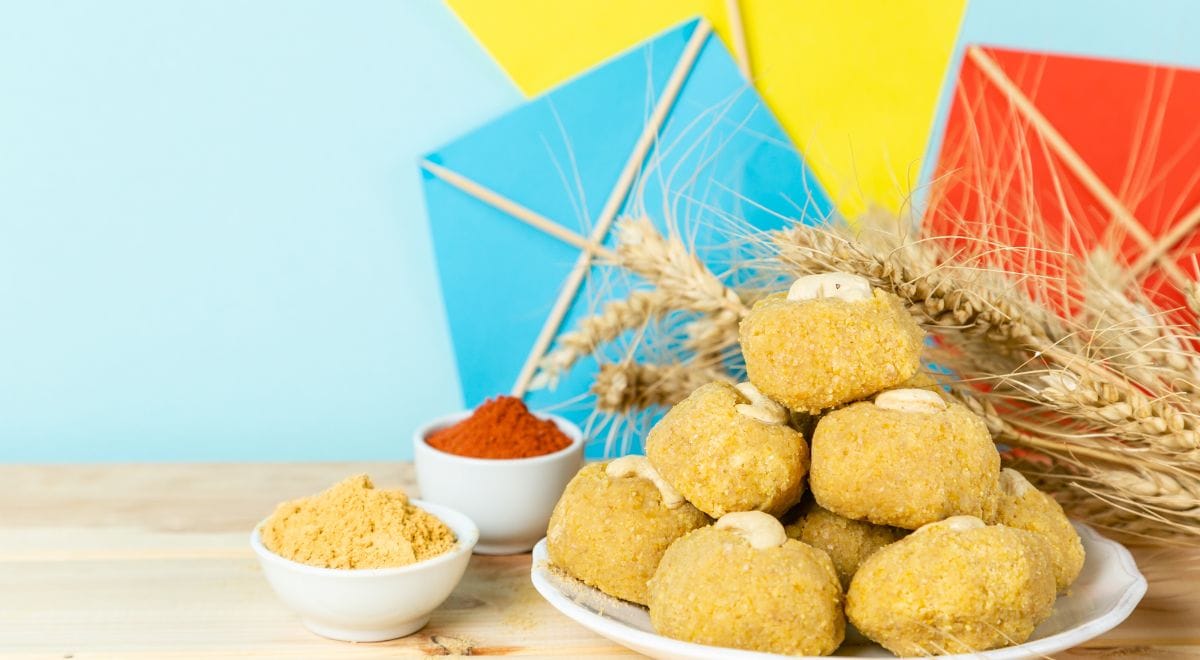
It's the season to rejoice in the victory of good over evil by lighting holy Makar Sankranti bonfires and taking in India's vivacious culture and traditions. So let's take a look at the what, why and how of this happy celebration.
What is Makar Sankranti?
Every year, the Hindu festival of Makar Sankranti is observed in India to commemorate the start of the solar year and the sun's entry into the Capricorn zodiac sign (Makar). Depending on how the sun moves, it is often celebrated on January 14 or 15.
Makar Sankranti is an important festival for Hindus, as it is believed to bring good luck and prosperity for the year ahead. It is also a celebration of the abundance of the harvest season, and is often associated with the end of the winter solstice.
Why Makar Sankranti has different names?
The festival is known by different names in different parts of India, depending on the local language and culture. For example, in Gujarat and Maharashtra, it is known as "Makar Sankranti", while in Tamil Nadu it is known as "Pongal". In West Bengal, it is known as "Magh Bihu", and in Assam it is known as "Bhogali Bihu".
Despite the different names, the festival is generally celebrated in a similar way across the country, with people participating in religious rituals, flying kites, and enjoying special foods. The festival is also seen as a time of renewal and starting new things, and is a time for people to come together to celebrate.
How is Makar Sankranti celebrated in different states of India?
Makar Sankranti is celebrated in many different ways across India, depending on the local culture and traditions. Here are a few examples of how the festival is celebrated in different parts of the country:
In Gujarat & Maharashtra the festival is known as Uttarayan and Maghi Sankrant respectively .One of the most popular activities during Makar Sankranti in both places is kite flying. People of all ages participate in this activity. Kite flying competitions are also held, and people try to cut each other's kites with special strings coated in a mixture of glass and glue.In addition to kite flying, Makar Sankranti is also marked by religious rituals and the sharing of special foods and sweets. Til-gul, which are sweet ladoos made with sesame seeds and jaggery, are a popular treat that is prepared and shared with friends and family. People also visit temples and take holy dips in rivers and lakes as a way of seeking blessings and purification.
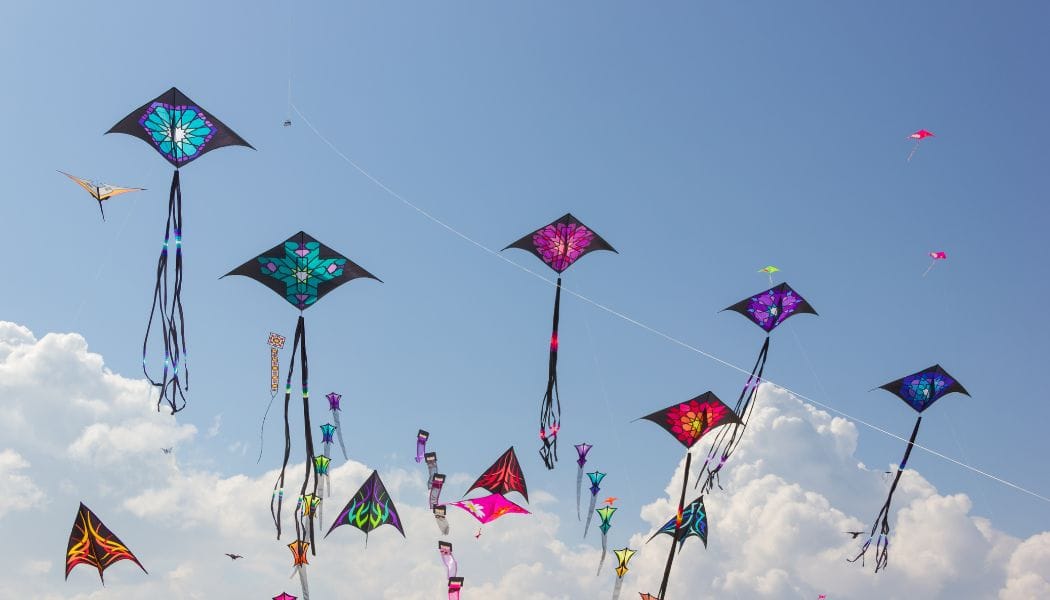
In Tamil Nadu, the festival is known as Pongal and is celebrated over a period of four days.
The first day is called "Bhogi Pongal", and is marked by the burning of old objects to signify a fresh start.
The second day is called "Surya Pongal", and is dedicated to the sun god. Special dishes such as pongal (a type of rice porridge) and vadai (a type of savory snack) are prepared and offered to the gods.
The third day is called "Mattu Pongal", and is dedicated to cows, which are decorated and given special treats.
The fourth day is called "Kaanum Pongal", and is a day for families to get together and celebrate.
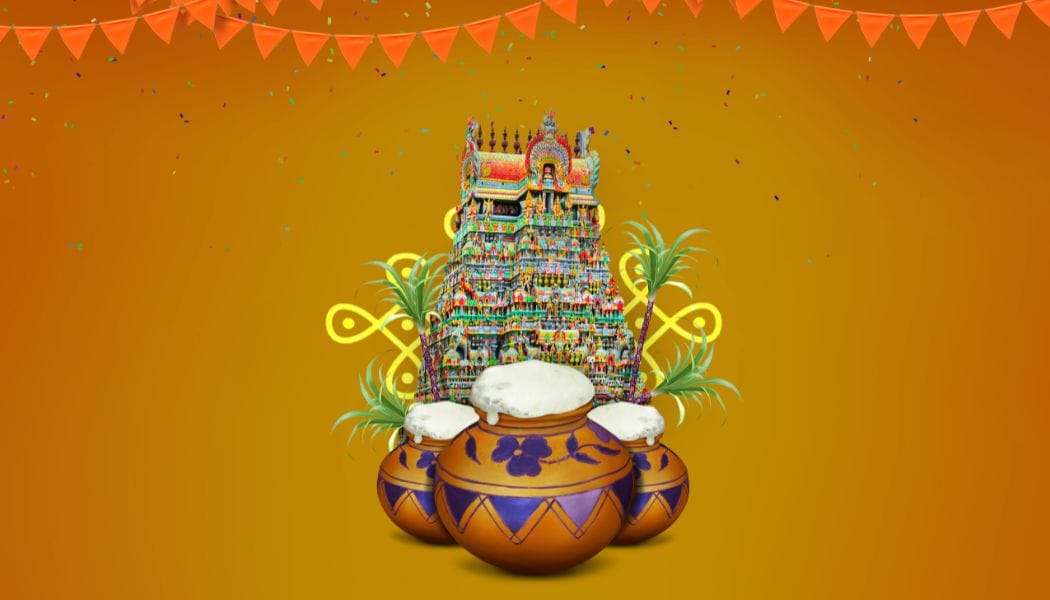
In West Bengal, In West Bengal, the festival is known as Magh Bihu and is celebrated over a period of three days.
On the first day of Magh Bihu, people build temporary huts called "meji" from bamboo and thatch, and decorate them with flowers and other decorations. Bonfires are also lit as a way of seeking the blessings of the gods and as a symbol of renewal.
On the second day of Magh Bihu, people participate in traditional games and sports, such as tug-of-war, wrestling, and various other competitions. Special dishes such as pitha (a type of sweet cake made with rice flour) and laru (a type of snack made with sesame seeds and jaggery) are also prepared and shared with friends and family.
On the third day of Magh Bihu, the temporary huts are dismantled and the materials are used to make fences and gates for the fields. This is seen as a way of thanking the gods for the bountiful harvest.
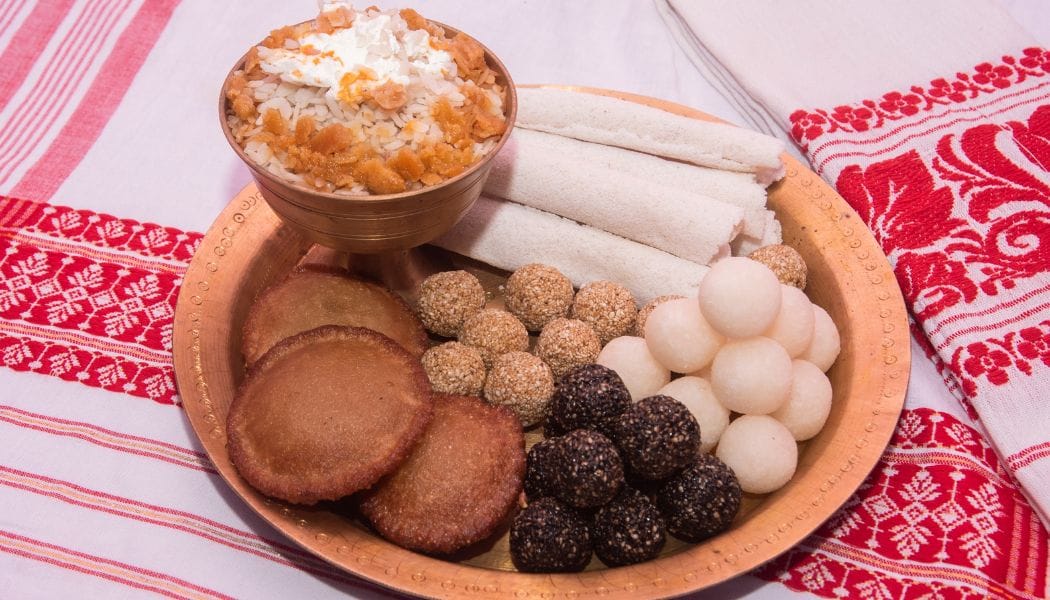
In Assam, the festival is known as Bhogali Bihu and is celebrated over a period of two days.
On the first day of Bhogali Bihu, people prepare special dishes such as pitha (a type of sweet cake made with rice flour) and laru (a type of snack made with sesame seeds and jaggery), which are then shared with friends and family. Bonfires are also lit as a way of seeking the blessings of the gods and as a symbol of renewal.
On the second day of Bhogali Bihu, people participate in traditional games and sports, such as buffalo fights, cockfights, and various other competitions. People also visit temples and offer prayers to the gods.
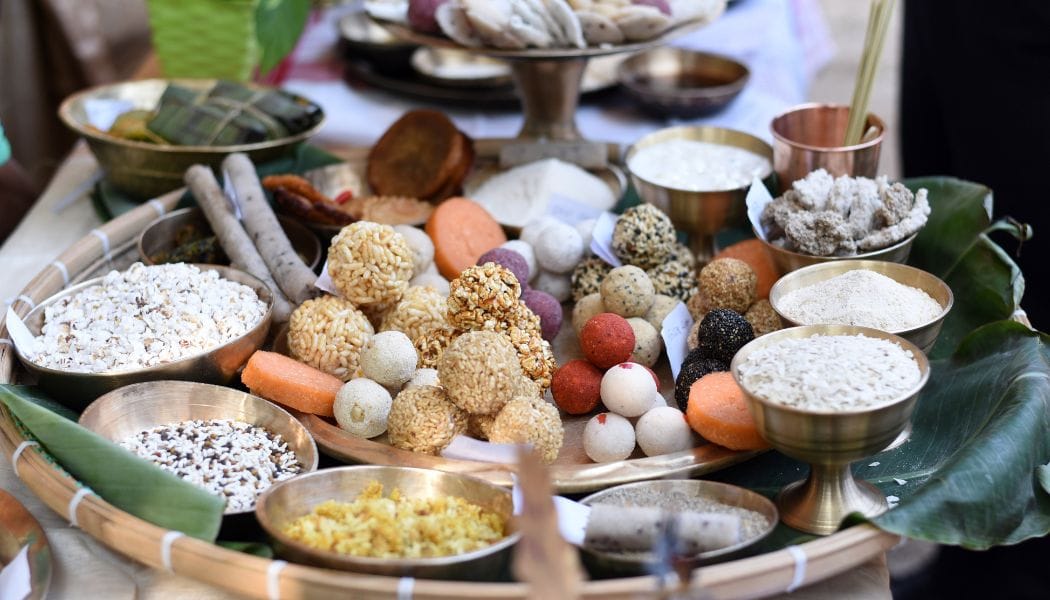
In Punjab, Makar Sankranti is known as Lohri .
On the day of Lohri, people light bonfires and gather around them to sing and dance. Special foods such as gajak (a type of sweet made with sesame seeds and jaggery), rewri (a type of sweet made with ghee and flour), and popcorn are prepared and shared with friends and family. People also exchange gifts and sweets with loved ones.
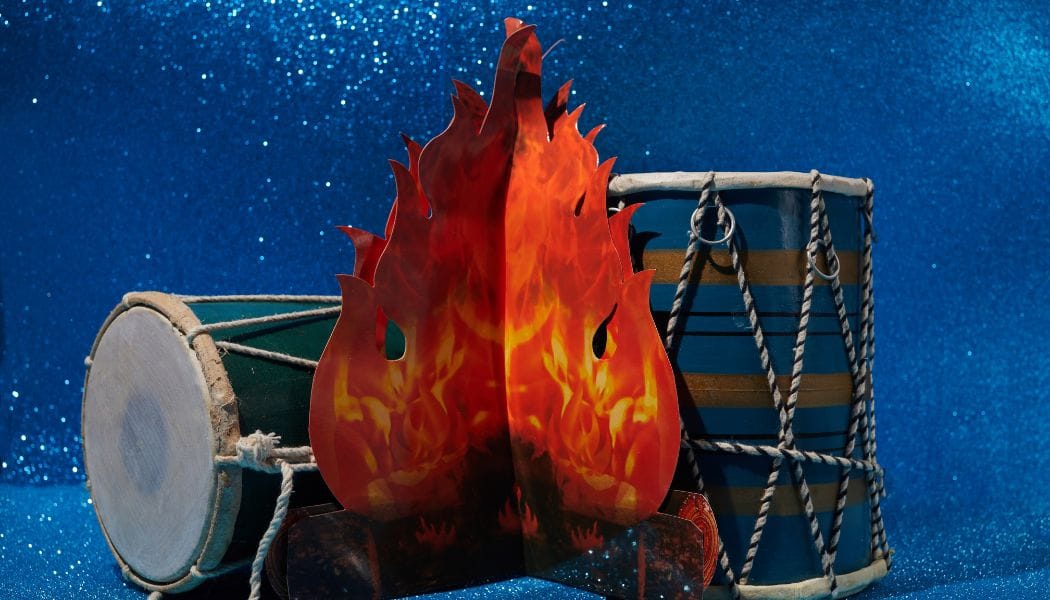
In Uttar Pradesh and Bihar; the festival is known as khichdi ( a mixture of rice and lentils that is a staple food in many parts of India).
People come together to cook and enjoy large quantities of khichdi, which is often served with a variety of accompanying dishes such as pickles, curd, and papad. The festival is also marked by the performance of traditional dance and music, and the wearing of new clothes.
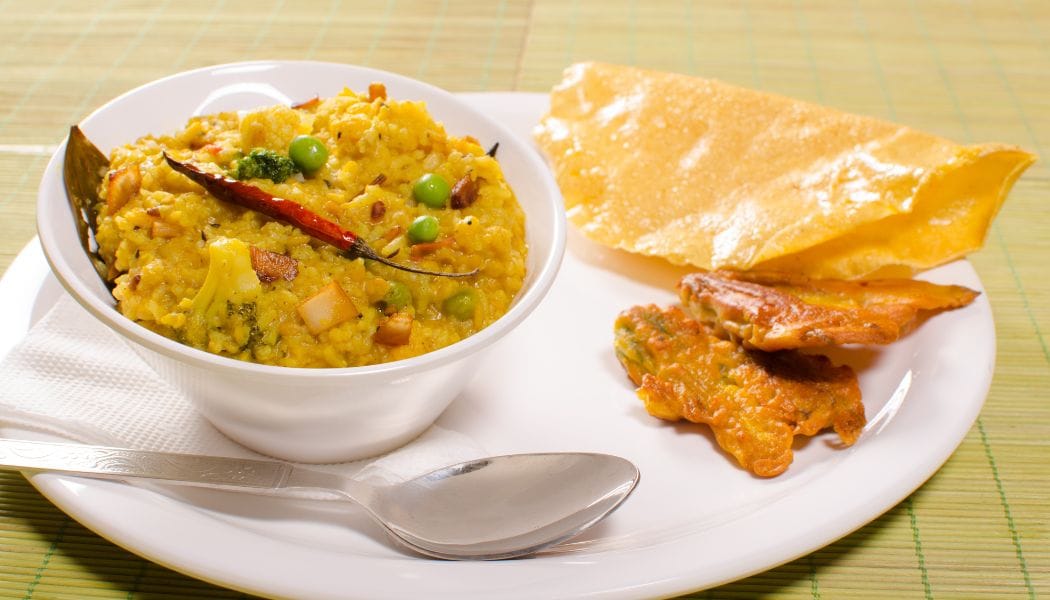
Harvest festivals are an important part of the cultural fabric of India, and are celebrated in various parts of the country to thanks for the blessings of the harvest season. These festivals are a way for people to celebrate the abundance of the season, and to express gratitude for the hard work and efforts of farmers. Makar Sankranti is one such festival to celebrate our traditions, customs, values and a remarkable reflection of India's unity in diversity.

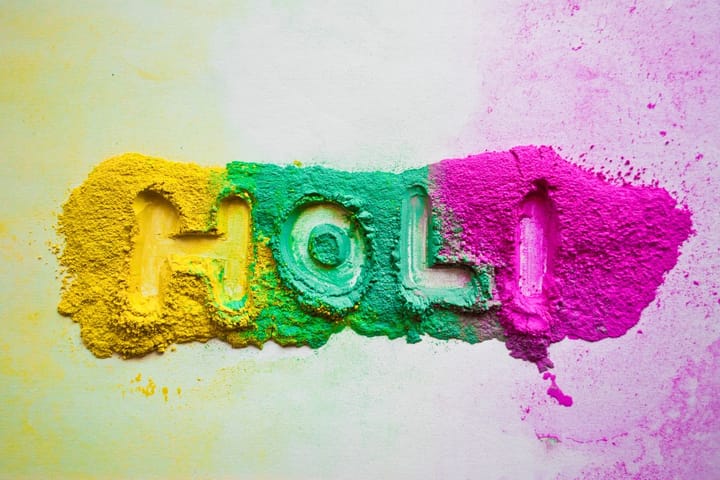


Comments ()